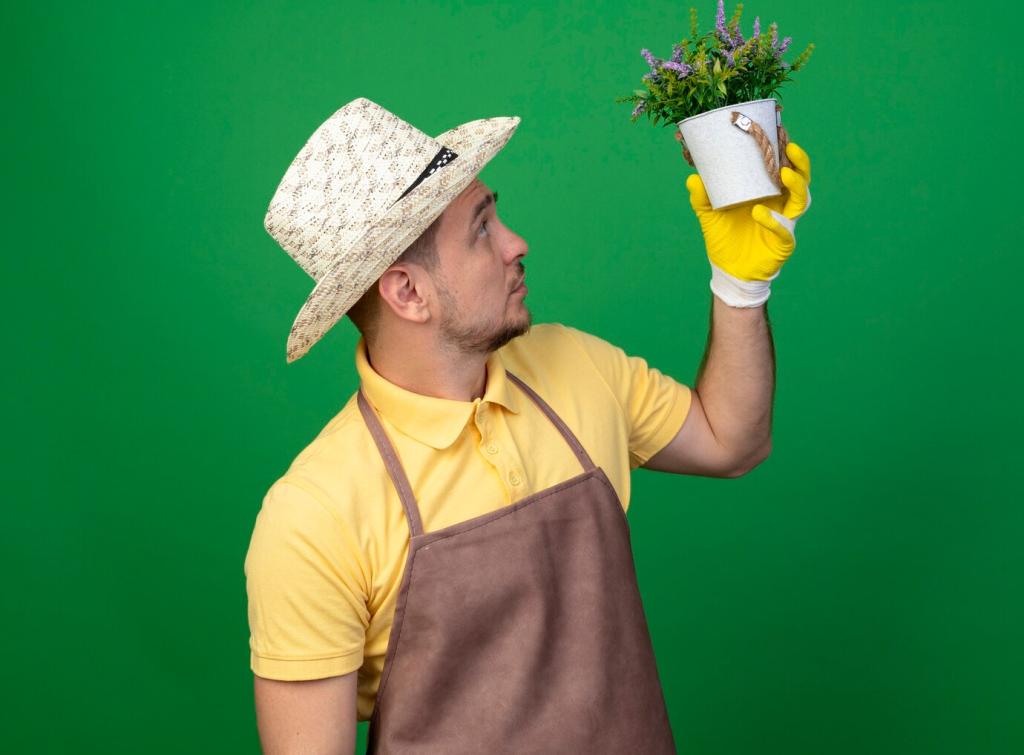
Smart Technology in Urban Gardening
Smart technology is transforming urban gardening by bringing together innovative tools, connected systems, and digital insights to maximize green spaces within city landscapes. From balcony planters to rooftop farms, urban environments are experiencing a resurgence in horticulture, driven by intelligent solutions that boost productivity and sustainability. This web page explores how integrated smart systems are reshaping how city dwellers grow food and nurture plants, overcoming traditional challenges and enabling a greener, more resilient urban life.

Integration of IoT Devices
Incorporating Internet of Things (IoT) devices into urban gardening revolutionizes the way city dwellers cultivate and maintain their plants. Sensors for soil moisture, temperature, and light offer real-time feedback, empowering gardeners to respond instantly to plant needs. Automated irrigation systems activate only when necessary, conserving water—a crucial resource in metropolitan environments. Smart pots and raised beds with embedded sensors allow even novice gardeners to achieve optimal plant health. These connected devices not only alleviate daily maintenance efforts but also aggregate data that can be analyzed for continuous improvement, ensuring thriving gardens on balconies, rooftops, and shared community spaces.
Urban Agriculture and Data Analytics
While urban agriculture faces unique challenges like space constraints and inconsistent weather variables, data analytics offers innovative solutions. By harnessing large sets of sensor data, urban gardeners can identify microclimate patterns, predict optimal planting windows, and select crops best suited to specific environments. Predictive analytics makes it possible to manage potential pest outbreaks before they become a problem, and software-driven platforms deliver tailored advice based on individual garden conditions. This analytical approach transforms traditional gardening into a science-backed discipline, enabling even inexperienced growers to succeed amid the complexities of city life.
Smart Technology for Sustainable Practices
Sustainability is at the heart of modern urban gardening, with smart technology playing a pivotal role in resource conservation and environmental responsibility. Automated systems can dramatically reduce water and energy consumption by precisely calculating and delivering only what each plant needs. Smart composters break down organic waste more efficiently, turning city refuse into nutrient-rich soil. The use of intelligent lighting systems allows indoor or shaded gardens to flourish with minimal power usage. Overall, these sustainable practices not only contribute to greener cities but also foster broader environmental awareness among urban populations.
Previous
Next
Automated Care and Precision Growing
Automated irrigation is a game-changer for urban gardeners who may be pressed for time or absent from home frequently. These systems, equipped with soil moisture sensors and weather forecasting integration, provide targeted watering based on real-time plant needs. By reducing the reliance on manual watering schedules, they minimize water wastage and prevent common issues like root rot or drought stress. Self-watering containers and drip irrigation kits, powered by smart controllers, make growing plants on balconies and in small patios easier than ever. This technology ensures consistent, stress-free plant care and supports flourishing gardens, even in the busiest city settings.
Community Impact and Connectivity
Digital Platforms for Urban Gardeners
Digital platforms tailored for urban gardeners provide virtual spaces to collaborate, share updates, and seek advice. Social gardening apps and city-centered forums encourage both beginners and seasoned experts to connect and discuss best practices. These platforms often include features such as plant identification, troubleshooting tips, and seasonal growing guides, all informed by real user data. By facilitating knowledge exchange, digital communities empower individuals to tackle urban gardening challenges collaboratively and collectively celebrate their successes. This virtual support network is particularly valuable for those with limited access to traditional horticultural resources or community gardens.
Collaborative Urban Farming Initiatives
Community-driven urban farming takes on a new dimension with smart technology. Online coordination tools help groups plan, manage, and track the progress of shared gardens or rooftop farms. Real-time updates about weather, growth stages, or resource needs streamline cooperative efforts and foster greater accountability. Community members are able to contribute according to their availability and expertise, creating flexible yet cohesive teams. These collaborative initiatives not only boost food security at the local level but also encourage stronger social ties and civic engagement, proving that technology can cultivate both plants and meaningful relationships in cities.
Enhancing Food Security and Access
Smart technology enables more efficient urban food production, addressing key concerns about food security in densely populated areas. Automated systems and real-time data allow for increased yields and reduced losses, making it feasible to grow fresh produce locally and reliably. By connecting urban gardeners to local distribution networks and community-supported agriculture (CSA) programs through dedicated apps, surplus harvests can be redirected to underserved neighborhoods or sold at backyard markets. This creates a more inclusive urban food ecosystem, bringing nutritious, home-grown produce within reach of diverse city populations and reducing reliance on long supply chains.
